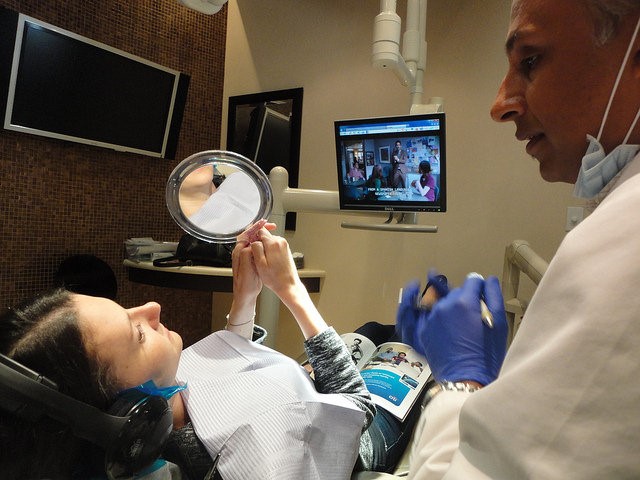
When a dentist looks in your mouth, it’s not only teeth and gums being observed. There may be tell-tale signs of undiagnosed illness that could be deadly if left untreated. There is more than one way a dentist may save your life.
Health experts recommend that people visit their dentist for a thorough check up and to have their teeth cleaned twice per year. Seeing a General Practitioner once per year for an annual physical examination is also standard practice in the West. Yet many people routinely skip seeing a doctor unless they are ill or injury forces their hand. Some may go for a number of years without requiring medical attention at all. On the basis of these recommendations alone it becomes evident that on average, many people are highly likely to spend more time at the dentist’s office than they do consulting with their General Practitioner.
CAN A DENTIST VISIT SAVE YOUR LIFE?
This fact gives rise to an interesting and perhaps vital fact: that a dentist may actually play an active part in saving the life of their patients. It may sound odd at first glance but thanks to the excellent training dental professionals receive, every year numerous patients are encouraged by their dentist to seek further medical advice. This timely intervention often results in an early diagnosis of health issues that could become life threatening without subsequent treatment.
MORE THAN TEETH AND GUMS
When a dentist performs an oral examination, it’s not only the state of one’s teeth that are being observed. The gums, tongue, and entire oral cavity are a highly accurate reflection of the general health and well-being of the patient. Because dental practitioners are exposed to many hundreds or even thousands of mouths in the course of their daily lives, they tend to be very experienced in understanding the various ways that the health of other bodily systems are reflected in the patient they are examining.
The human body is an incredible network of interrelated systems. One’s oral cavity often mirrors the health of the entire organism and can accurately indicate symptoms of underlying medical issues that may have been undiagnosed and therefore untreated. It stands to reason that being closely examined on a regular basis greatly increases the chances of important indicators of illness being observed.
A KEEN EYE FOR DETAIL
Whilst the patient sitting in the dentist’s chair may be undergoing what they consider to be another routine check-up, their Brisbane dentist is hard at work diligently taking note of the general condition of more than just one’s teeth and gums. For example, oral cancer is an extremely dangerous illness that exhibits obvious symptoms within the mouth. Red or white spots or sores that won’t heal can be early warning signs that are noted by an observant dentist. It is to the credit of dentists everywhere that this potentially fatal disease is diagnosed in a timely manner as often the patient may experience a complete lack of symptoms. The prognosis for survival is extremely positive when early medical intervention is promptly administered.
PREVENTION IS BETTER THAN CURE
There are many other illnesses such as diabetes, leukaemia, and anaemia that can be detected through the observation of symptoms within the mouth. Certain gum disease can also indicate an increased risk of serious heart disease. As previously mentioned, early intervention can help to insure these illnesses do not continue to cause unnecessary harm by progressing without sufficient medical treatment and continued monitoring.
FROM AWARENESS TO ACTION
It has oft been said that ‘an ounce of prevention is better than a pound of cure’ and that statement remains as true and accurate as ever before. With health awareness on the rise around the world, it has never been easier to seek excellent expert medical care and advice. But for those unfortunate few who are perhaps less vigilant or are simply caught unaware, there is always the possibility that the keen eye of their dentist will prevail and provide the impetus to help their patients address any underlying issues before they can cause unnecessary harm.


